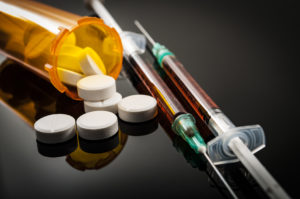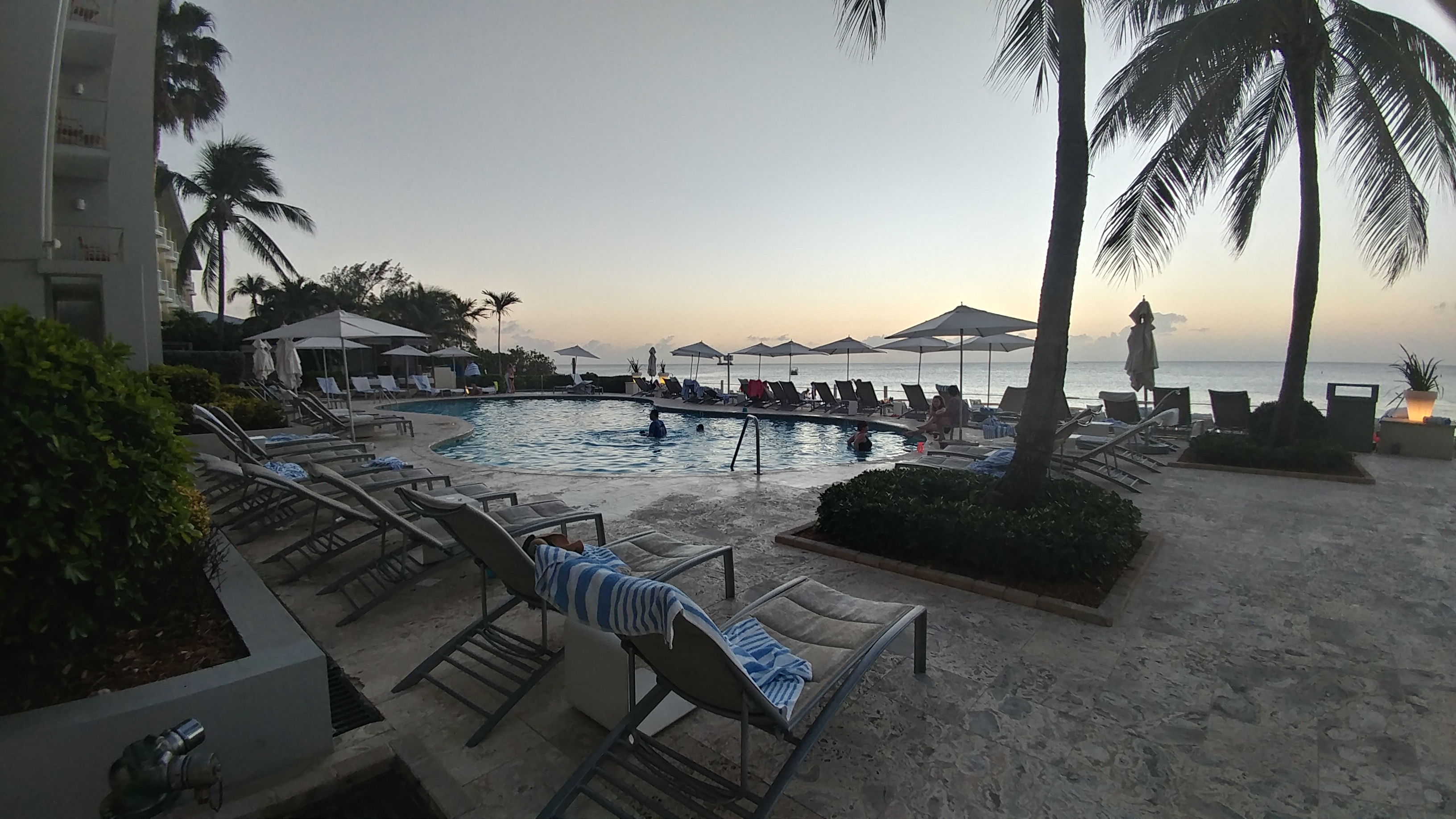Advertiser Disclosure: Eye of the Flyer, a division of Chatterbox Entertainment, Inc., is part of an affiliate sales network and and may earn compensation when a customer clicks on a link, when an application is approved, or when an account is opened. This relationship may impact how and where links appear on this site. This site does not include all financial companies or all available financial offers. Opinions, reviews, analyses & recommendations are the author’s alone, and have not been reviewed, endorsed, or approved by any of these entities. Some links on this page are affiliate or referral links. We may receive a commission or referral bonus for purchases or successful applications made during shopping sessions or signups initiated from clicking those links.

A Delta passenger died on board a flight Saturday after an alleged drug overdose. An overdose reversal drug could have saved the man — but apparently wasn’t stocked on the flight.
Lynne Lyman — a passenger aboard Delta flight 2531 from Boston to LAX —told Yahoo! Lifestyle that the man wasn’t discovered until the cabin crew’s landing preparations. When they opened a lavatory door, they found the unresponsive passenger.
“They were doing everything they could. CPR, shock compressions, those shock things,” she recounts. “There were a number of children on board who were looking. I was trying to pull my child from looking.”
Lyman says that a woman, who was either a doctor or nurse, went to help and called out, “What we need is Narcan, and there’s no Narcan.”
Los Angeles Fire Department paramedics responded when the plane landed at LAX — and purportedly zipped the man up in a body bag with passengers still on the plane.
What is NARCAN?
NARCAN is a brand of Naloxone: a drug that temporarily reverses the effects of opioids. The product has received plenty of attention in the past few years during the nation’s opioid epidemic.
A firefighter/EMT friend told me some overdose patients don’t want NARCAN administered — because a patient’s reaction to the drug is legally admissible in court proceedings. (NARCAN apparently only affects people who are in opioid-induced emergencies. It purportedly has no effect on people not under an opioid influence.)
Flight Attendants Union Wants NARCAN Onboard
“Passenger medical emergencies have and will continue to include opioid overdoses,” the Association of Flight Attendants wrote in a letter to the FAA. “Naloxone is not a standard on-board medication in commercial aviation, which renders individuals at a higher risk of death by overdose in the air than on the ground.”
Delta Claims To Already Have NARCAN On Flights – Or Do They?
A Delta spokesperson told Fox News that the airline “earlier this year made the decision to improve our on board emergency medical kits by adding Narcan. The process to outfit medical kits will begin this fall.”
But that contradicts what the airline said last year.
EMS World reported — after another onboard overdose — a Delta spokesperson said the carrier starting added NARCAN to its onboard first aid kits in fall 2018. The spokesperson said Delta would stock the drug “in earnest” before the end of 2018. (We don’t know if the spokesperson mentioned in both pieces is the same person.)
So do some Delta flights have NARCAN? Or do none of them stock it?
The opioid epidemic shows no signs of slowing down. Flight attendants now find themselves having to serve as paramedics, too. It’s unfortunate that airlines — or anyone — find themselves in this position and have to stock NARCAN. Some may think people could put away their drugs for a flight — but that’s not how addiction works.
Stories like this prove the opioid epidemic doesn’t discriminate as to whom it affects — or where.
What Do You Think?
Does this shock you as much as it does me? How much longer will untreated overdoses occur on flights?
Please share your thoughts in the Comment section below — Chris
Advertiser Disclosure: Eye of the Flyer, a division of Chatterbox Entertainment, Inc., is part of an affiliate sales network and and may earn compensation when a customer clicks on a link, when an application is approved, or when an account is opened. This relationship may impact how and where links appear on this site. This site does not include all financial companies or all available financial offers. Opinions, reviews, analyses & recommendations are the author’s alone, and have not been reviewed, endorsed, or approved by any of these entities. Some links on this page are affiliate or referral links. We may receive a commission or referral bonus for purchases or successful applications made during shopping sessions or signups initiated from clicking those links.










Cull the Herd…
One less bottom feeder to fund.
@loopy_liberal
That’s another human being you’re taking about.
Addiction is a disease and until people can stop thinking about it as a 20th vice/moral failing, this problem will remain far worse than it needs to be.
@Rene,
As a medical professional, no thought is given to what they might not want; unconscious patient = implied consent. I’ve also never heard that as justification before, but rather, the reversal is so instantaneous and sudden that the patients can occasionally become violent for a bit.
Also, I respectfully disagree that that the epidemic is showing no signs of slowing down. In fact there are fresh signs of encouraging progress when looking at the country as a whole.
@Jake: Thanks for the comment. FWIW, I wrote the post. Don’t blame Rene — he’s innocent 🙂
No to the NARCAN on board.
I had to open the medical box on board a non stop Turkish air flight to IST from LAX for a passenger with a suspected accidental narcotic overdose. Those boxes are stocked with everything from emergency cardiac and anaphylactic meds to even pitocin(Weird!), But there was NO Narcan/naloxone to reverse opioids. Which as we all know is sooo common! Blew my mind. Kept the passenger on O2, stimulating her, occasional bagging till we landed. The medical team that came on to the plane hadn’t even heard of narcan before or something to reverse opioids and no there was not a language barrier. She was going to be ok but wow I thought it was just an international carrier that didn’t have it!
Just another evolving nuance for the airlines to deal with. Of course this will have to be added to flight attendant training since they may be held responsible for using (like defibrillators). I can just visualize their response to the news.
There was a story yesterday about America’s Sexiest Doctor who saved someone on board having an allergic reaction and there was no epi pen. Personally I want airlines to focus on having an epi pen in their medical kit before we start worrying about Narcan. Also, since it is not uncommon for addicts to get violent after being administered Narcan and finding themselves suddenly awake, sober, and in withdrawals, I’m not sure I would want it on a flight unless there was also an Air Marshal or someone else with the ability to provide some protection to other passengers.
There is epinephrine in the medical kit. So really the only benefit of an epi pen is if there isn’t a medical person on board who can open the kit. The cost of an epi pen compared to a vial in the med kit is astronomical (think cents versus hundreds of dollars) Naloxone is an important drug that should be onboard. There really is not substitute for it..
@FlyingDoctorWu I received quite an education today thanks to you, @Justin, and @Jake! Thank you three!
I would think there certainly is a risk of having no medical personnel onboard since it isn’t as though airlines staff physicians or EMTs on board…
@JJ Naloxone (NARCAN) can be administered by almost anyone who has been trained in its administration. I train military veterans and library staff, dental office receptionists to grocery store employees (all are in environments where large numbers of people may be).
Training is very basic but important as it includes necessary tools to recognize an opioid overdose from other medical situations.
My point is, FA’s, as a profession already receive first aid, AED and other basic first aid trainings. Naloxone would not be a heavy lift and absolutely does not require a medical professional to be present to administer.
As to the violent responses that may occur after administering Naloxone, it can be the case but is normally not. I have never seen a violent/frightened reaction last more than a few seconds.
+1 for NARCAN on all flights.